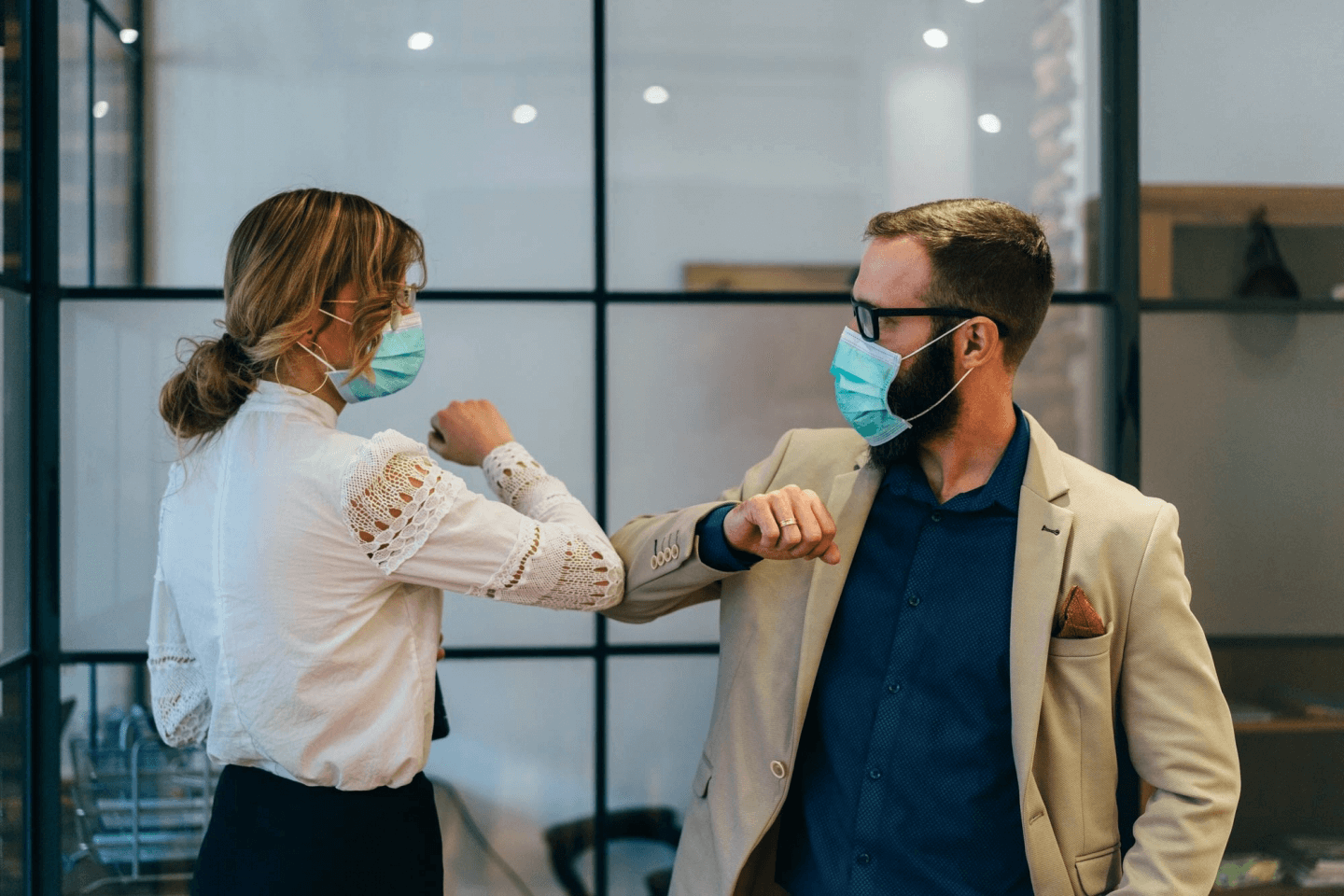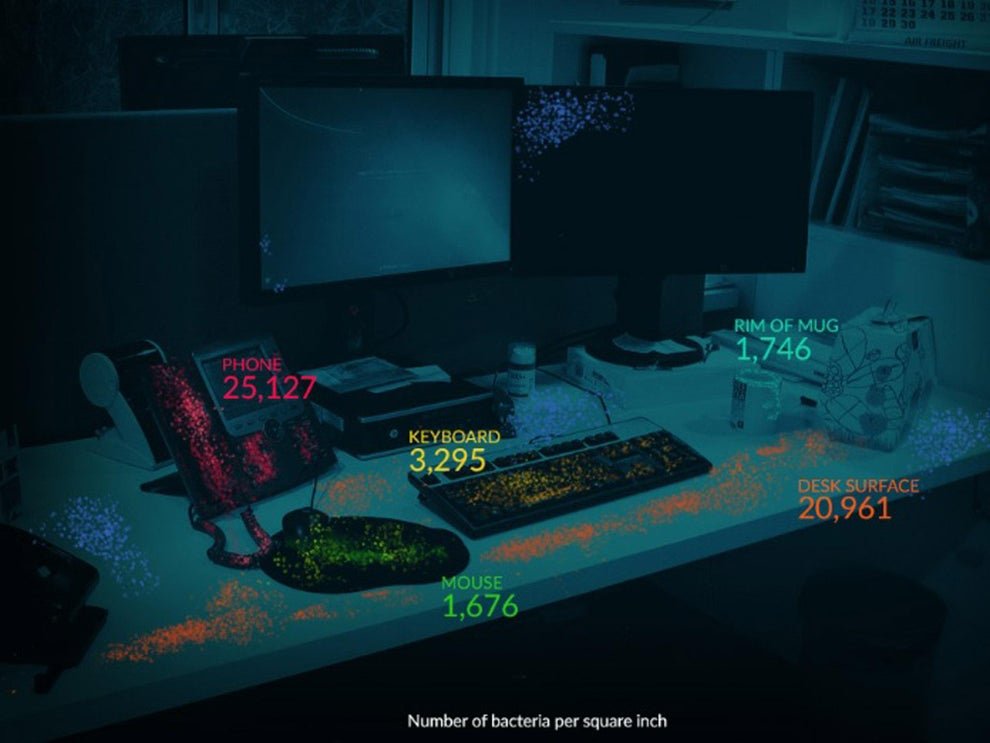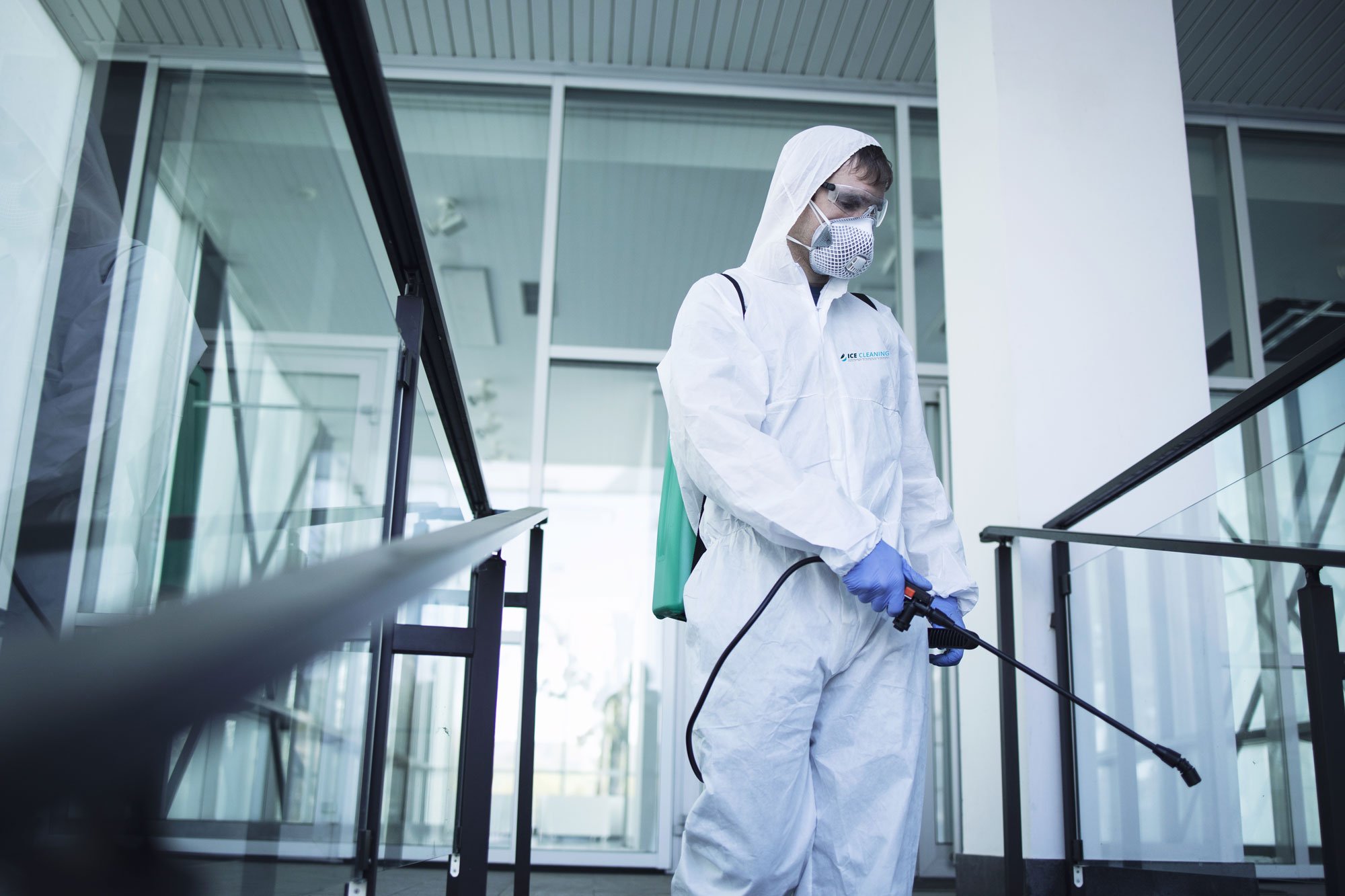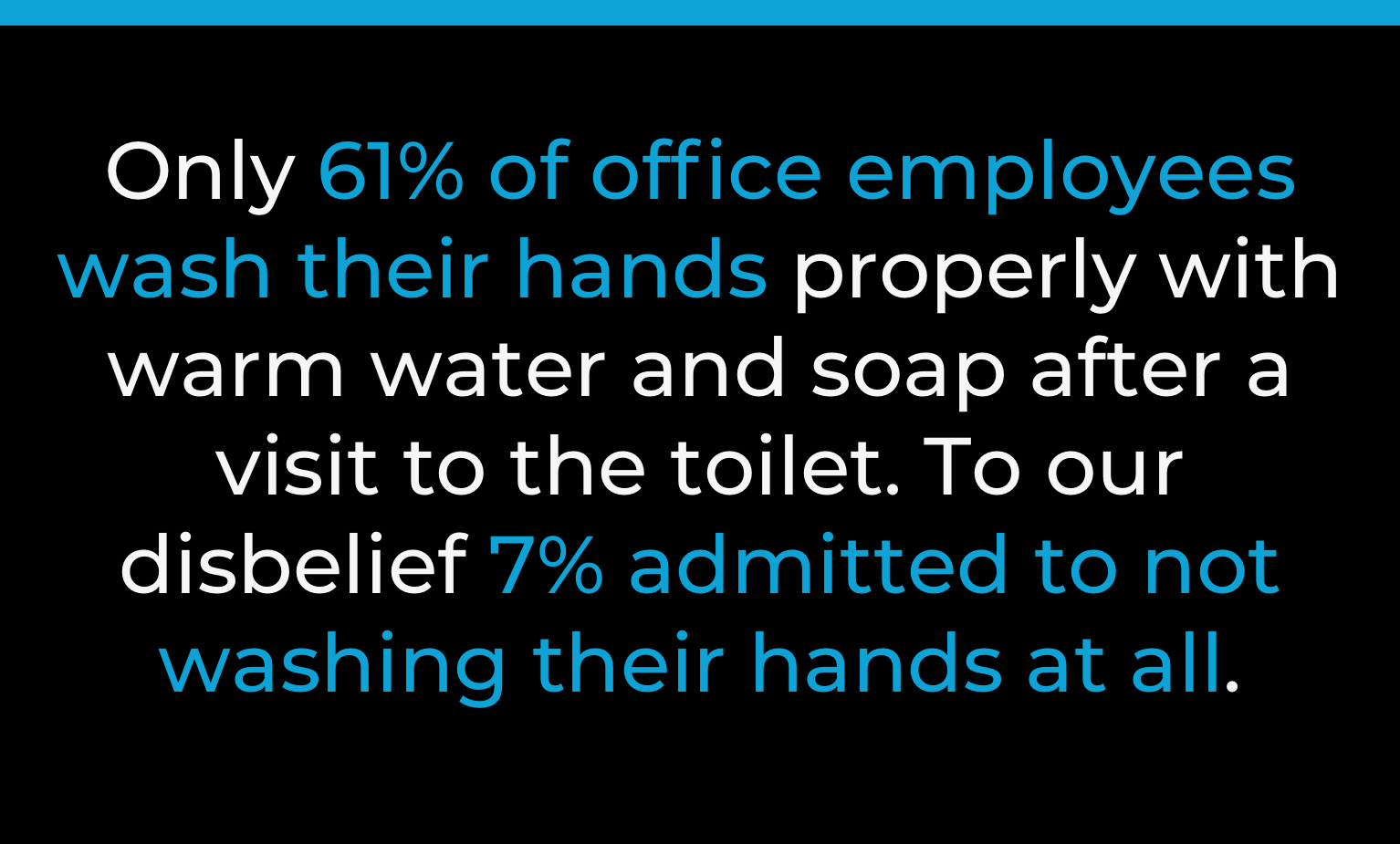Why Is Good Health And Hygiene At Work So Important?

Many businesses in the UK, especially in London, have now been granted permission and actively encouraged to return to work.
The news had led to facility and office managers having to quickly respond with ways to make their buildings safe for their employees to return. As the nation starts reopening its doors, manoeuvring our way through the “New Normal” has caused drastic changes.
These draconian times caused by a global pandemic has led to an introduction of high cleaning standards across all sectors. People are becoming more confident when stepping outside; shopping malls, transport and leisure centres are becoming busier. Whether this same confidence applies to people returning to the office is still yet to be determined with furlough schemes and remote working still in full force.
Employees need to feel completely safe whilst returning to work after the coronavirus. Decontaminating equipment, desks and communal areas are just a few examples of how employers are taking necessary precautions to ensure rigorous health standards are being maintained.
Maintaining a healthy, safe and clean work environment is not always taken seriously as research from the University of Arizona found that “[the] average desktop has 400 times more bacteria than the average toilet seat.”

Primary culprits in an office type environment are office phones, desk surfaces and keyboards. Even though these objects may appear as though they are clean, using them on a daily basis is likely to build up a high count of microorganisms which cannot be seen by the naked eye.
When can cross contamination occur?
Various objects and surfaces around the office are considered “high-touchpoints”; areas that often come into contact with a diverse amount of people throughout the day.
High touchpoints are often located in high trafficked areas and require thorough decontamination before employees start returning in the office. After a decontamination clean these “high touch points” would need to be regularly disinfected and cleaned to stop any form of cross-contamination occurring.
Commonly shared high traffic touchpoints within the office include:
- Door handles
- Staircase rails/ handrails
- Lift buttons
- Kitchen surfaces
- Taps, kettles and fridge doors
- Rubbish bins
- Communal office meeting phones
- Whiteboards/markers
- Toilet handles
- Sinks
- Light switches
- Desks
Many studies have shown that within the office, germs can spread from an infected person to the entire office on the same floor within just 2 hours via contaminated touchpoints.
It is extremely important to make sure all commonly shared touchpoints are thoroughly cleaned and most importantly disinfected with, by adopting a frequent and thorough decontamination service which increases the longevity of protection.

Our specialist experts within the field of coronavirus cleaning & decontamination are equipped with the latest technology, liquid treatment solution, and are well versed in the best cleaning techniques. Our results have been proven to be four times more effective than any traditional cleaning methods and effectively last a minimum of 28 days.
Our plan of action prioritises the safety of employees and customers as all products used are non-toxic and are safe among humans and pets once applied.
After any COVID-19 cleaning or decontamination service, our technicians will assess your building and recommend the best ways to help minimise the spread of all viruses and bacteria within the office, these include but are not limited to:
- Keep all doors open (excluding fire doors) or install a motion sensor that opens the door to eliminate the need to touch any form of a handle.
- Tape off kitchen appliances for the time being. Food and drink can either be made at home and brought in or bought from a store.
- Limit the number of people allowed into the premise and reduce the amount of movement around the premises. Ensure that anything an employee would need is on their desk.
- Place notices around your premise, reminding people to avoid touching items.
- Educate your employees to practice good hygiene.
- Keep a record of all employees, what date and time they enter a building. This will come in handy if there is ever a break out within the office.
Restricting all employees and customers contact with surfaces isn’t feasible; however, other practices can be put in place. Consider placing a hand sanitiser dispenser (preferably sensor-based) and posters by all high foot-traffic areas.
While regular surface cleaning will help limit the spread of bacteria throughout the office, it will not stop the contamination if it becomes present again. Cleaning, disinfection and decontamination are three very different processes that many people don’t understand.
Regular Cleaning
Cleaning is the act of making objects and surfaces sanitary by removing dust, dirt, microorganisms and debris. Standard cleaning kills most of, but not all organisms sitting on the surfaces. Using soft or watered-down chemicals does not require the customer to wear any form of personal protective equipment (PPE). Common household products such as multipurpose cleaning agents and bleach are often found throughout regular cleaning.
Disinfectant
Stronger than the chemicals used inside cleaning products is a disinfectant. The procedure of disinfection eliminates the majority of pathogens but not necessarily all types of microbes. It is a good idea to have a routine in place to regularly disinfect hotspots within the office with either wipes or spray after a full decontamination process has been completed.
Decontamination
Decontamination is the procedure that effectively eradicates viruses and prevents it from spreading further. Dead microorganisms and toxins may remain, but they are not harmful to the human body.
A legitimate decontamination process will require a specialist technician to run the job. Full PPE needs to be worn as the substances can be extremely harmful to the individual if inhaled or touched.
Here at ICE Cleaning, our team of expert technicians are on hand 24 hours a day to offer disinfection and decontamination services.
Promoting good hygiene, especially now that employees are returning to the workplace, is a great way to decrease the risk of contamination whilst also educating your employees on how to take care of themselves when outside of the office.
Good hygiene practices
The human body can be the perfect host for diseases to fester. In a lot of cases, people are unaware that they are ill, also known as asymptomatic. As a result, these types of infected people can pass on the virus whilst being completely unaware. Adopting the principles of good hygiene practice, undoubtedly will decrease the chances of becoming infected as well as reducing the possibility of passing on the virus unknowingly.

A healthy workforce is a happier, more productive workforce. If each employee practices good hygiene, there is no doubt in anyone’s mind that there may be an opportunity for them to become sick. Having an official company policy dedicated to practising good hygiene within the workplace will offer reassurances to both employees and customers.
A list of good hygiene practices that should be followed daily is as follows:
Hand washing
Washing your hands with soap and warm water for a minimum of 30 seconds is the best line of defence against all pathogens. Wash your hands at all given opportunities, after using the bathroom, before and after you eat, after you get off transport etc. Remember to wash both the front and back of the hands as well as in between your fingers for maximum coverage.
Coughing or sneezing
Always cover your mouth and nose when coughing or sneezing, whether that be with a tissue, your elbow or your hands. Always cover your face, throw away the tissues immediately, wash your hands thoroughly with warm soapy water. Remember to disinfect any object or surface you touch.
Keeping your distance
Maintain at least 1 metre (3 feet) from anyone outside of your household bubble. Wearing a mask in public places is highly recommended, although in some areas it is compulsory unless you are exempt.
Washing
Washing both your body as well as clothes and masks is considered essential in practising good hygiene.
Final thoughts
Creating a safe environment at work is one way to stop workers from feeling scared or apprehensive in their return to work. The guidance from the government is constantly changing, which doesn’t help with people’s confidence. We provide an exclusive combination of skills that can help you get your employees back to work and feeling happy and confident once again.
To get in touch with ICE Cleaning Experts, please call us on 0208 066 0360 and find out how our specialist cleaning team can keep your premises as hygienic as possible.

Speak with me today,
I’m here to help
By asking you a few questions either via phone or email I can immediately provide a realistic estimation of the cost.
You’re in good company. We’ve cleaned for the following commercial clients… View all

Why choose us?
- Cater to a wide variety of cleaning situations
- Nationwide coverage, available 24/7
- Cater to commercial and domestic clients
- Free survey provided prior to quotation
- Emergency response team
- Offer a bespoke service designed to suit all your needs
- All technicians hold professional health and safety qualifications, including BICSc, IOSH, Dewpoint Professional & Safe Contractor
We’re fully accredited
We place best practise, professional expertise and health and safety at the core of our business. We’re fully compliant with all legal obligations. You can view a list of our accreditations below, or visit our Health & Safety page for more information.











-RGB-small.1707319151.jpg)




















